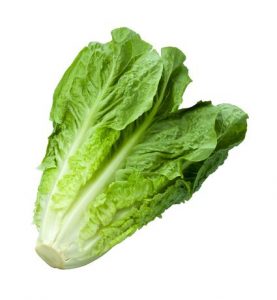The coverage of an outbreak usually follows a familiar story arc – people get sick; additional illnesses roll in as the investigation unfolds; media shares what people can do with the product to protect themselves and finally, sometimes a source is fingered.
In Canada’s lettuce-linked E. coli O157 outbreak, we’re in phase three – what can you do?
One challenge in answering that question is the Public Health Agency of Canada hasn’t released (or doesn’t know) exactly what types of romaine lettuce are linked – and whether it’s sold as a head, or chopped (like in a salad kit). The ‘what can you do?’ is influenced by that.
According to Global News, one of the risk management steps a home chef could employ is washing the lettuce. Even if its washed, bagged and ready-to-eat.
Jason Tetro, a visiting scientist at the University of Guelph in Ontario, explained that the bacteria is typically not found in produce such as lettuce. Instead, it’s in the water that’s used to irrigate produce on farms. For example, he said the water from a nearby river could be contaminated with manure from cows on the farm.
But Tetro explained that if lettuce is properly washed, it can minimize the risk of contamination.
“If you are buying lettuce, romaine or otherwise, make sure each leaf is given a good washing under warm to hot water,” he advised.
Using “friction,” or rubbing the leaves with hands, is one way of making sure any bacteria is washed off.
Does pre-washed lettuce need to be rinsed?
The shorter answer, according to Tetro, is yes.
“Let’s put it this way, did you see the person who washed it? No,” he said, explaining that consumers can never be too sure of how the produce was cleaned.
“It’s much better for your own safety that you do something yourself.”
I disagree when it comes to prewashed bagged lettuce from a regulated processor who’s managing food safety, because of what these folks wrote:
Recommendations for Handling Fresh-cut Leafy Green Salads by Consumers and Retail Foodservice Operators
Mary S. Palumbo, James R. Gorny, David E. Gombas, Larry R. Beuchat, Christine M. Bruhn, Barbara Cassens, Pascal Delaquis, Jeffrey M. Farber, Linda J. Harris, Keith Itoto, Michael T. Osterholm, Michelle Smith, Katherine M.J. Swanson
Biblographic citation: Food Protection Trends, vol. 27, no. 11, pp. 892-898, Nov 2007
Volume 27, Issue 11: Pages 892–898
A panel of scientists with expertise in microbial safety of fresh produce was convened to review recent research and re-evaluate guidelines for foodservice and restaurant operators, regulatory agencies with oversight over food facilities, and consumers for handling prewashed bagged salads. The guidelines developed by the panel, together with materials reviewed by the panel to develop the guidelines, are presented. The background materials reviewed include published research and recent recommendations made by other authoritative sources. The panel concluded that leafy green salad in sealed bags labeled “washed” or “ready-to-eat” that are produced in a facility inspected by a regulatory authority and operated under cGMPs, does not need additional washing at the time of use unless specifically directed on the label. The panel also advised that additional washing of ready-to-eat green salads is not likely to enhance safety. The risk of cross contamination from food handlers and food contact surfaces used during washing may outweigh any safety benefit that further washing may confer.
